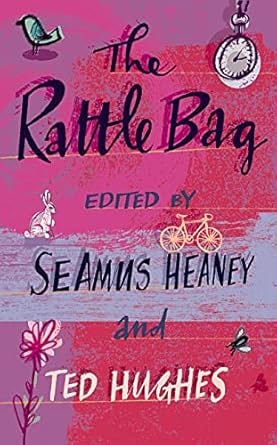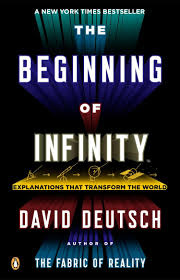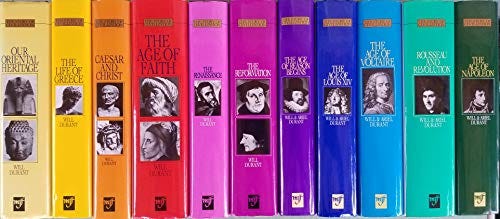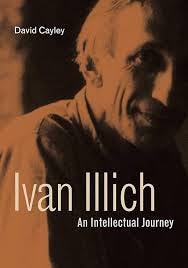Books are meant to transform us. All readers, consciously or not, embrace this idea. Yes, we read for entertainment and information, but we also read to be shifted—jolted—from our prior state of knowledge. We read to be made new.
Too often, though, books languish on the shelf: half-read, unread, or skimmed on a beach two summers ago and since forgotten. This happens even with books we love. They exist in our past, not our present.
To get the most out of your reading life, you have to put in a little effort. You have to remember to equip books.
This is especially crucial given the deluge of content we’re all facing. Just look at Google Veo 3 to see where video generation is headed. Things are about to get extremely weird.
Can you appreciate how much creativity will be offloaded to these tools? Do you see the importance of clarifying—for yourself, above all—the ideas you hold dear?
What follows below aren’t necessarily my favorite books or my desert island picks. These are books I’ve found useful, handy companions I want alongside me for the battles ahead.
Five books I want to equip.
I scoured my home and Kindle libraries to narrow things down. What's on your list?
First up for me: a rallying cry against negative self-talk.
Learned Optimism by Martin Seligman
Learned Optimism is a book about cognitive reframing, about how we interact with our own ideas. It should be required reading for young people—and adults too. It will make you feel better about pretty much everything.
Martin Seligman, an American psychologist from UPenn and the founder of positive psychology, observed a striking pattern among his patients. They were pervasively, desperately pessimistic. And most of them didn’t even realize it.
They assumed they were being logical, reacting to the evidence at hand.
“The economy’s going down the drain; our healthcare system is a joke; climate change will ruin the planet.”
Seligman takes pains to show that pessimists aren’t always wrong. Sometimes things really are bad. But pessimistic thinking becomes a habitual, automatic response. What’s more, the pessimist pays a steep emotional toll for his outlook.
After all: would you rather be correct—or happy? (Of course, the pessimist often isn’t correct—only sometimes, so it’s something of a false choice—but even those moments are made worse as a result of her negative self-talk!)
In a sense, Seligman turns relativism—the subjectivity of truth—on its head and says, “Actually, this can be freeing.” By choosing how we interpret events, we reclaim agency over our emotional lives.
Yes, the stock market deviates frequently, but economic growth has been the theme for 100—no, 1000—years! (For the investors out there, remember: bulls always beat bears over the long run).
Yes, healthcare is flawed in America, but it’s flawed everywhere—and dedicated people are working tirelessly to improve it.
And yes, climate change is a serious challenge, but human ingenuity has already begun to yield solutions, including renewable energy and carbon capture.
Seligman builds on the work of Aaron Beck, the father of cognitive behavioral therapy, and Albert Ellis, whose excellent book A Guide to Rational Thinking could’ve just as easily been highlighted here.
He lays out quite plainly how to catch yourself responding to inciting events and interrupt the pessimistic process. He shows you how to observe your automatic responses to events, which for so many of us skew negative, and flip the script.
So please do put on the rose-colored glasses. Be optimistic. It makes everything better.
The Rattle Bag edited by Seamus Heaney and Ted Hughes
I’m only an occasional reader of poetry. In high school, I was terrified of the metrical buffet of iambs, anapests, spondees, trochees, and dactyls. I was lost during Paradise Lost, burned by Dante’s Inferno.
I liked the poets I could understand: Dickinson, Frost, Larkin. I feel the same way about movies, music, paintings, video games—you name it. I enjoy being in the presence of clear, meaningful, succinct works of art.
That’s why I cherish my copy of Heaney’s and Hughes’ The Rattlebag, a diverse anthology of short poems arranged alphabetically for serendipitous discovery.
Seamus Heaney and Ted Hughes were themselves giants in the world of poetry. The Irishman Heaney won the Nobel Prize in 1995, and Hughes, once famously married to Sylvia Plath, was the rugged Poet Laureate of England. Their 1982 collaboration was born from a desire to awaken the “sleeping poet” in readers; it’s an eclectic collection of their own personal favorites, titled after a noisy Welsh poem.
And it’s simply a fun book to have on hand. The Rattle Bag juxtaposes Shakespeare with folk charms, Plath with anonymous incantations. It puts masters like Blake, Whitman, and Eliot next to lesser-known voices like Dafydd ap Gwilym and Norman Nicholson.
The Rattle Bag is like an expertly curated playlist (poemlist?) by two masters of the form. Five minutes flipping through it, and I’m content. What more could you ask for in a book?
Equipped.
The Beginning of Infinity by David Deutsch
David Deutsch is one of the smartest people alive.
The Oxford-based physicist looks like a character out of a Tolkien novel. He speaks in patient, mischievous sentences, as though he’s rehearsed every possible counterargument you might throw his way. And he manages to write about the most complicated topics imaginable in an utterly clear and engaging style.
Deutsch’s first book, The Fabric of Reality, sketches a grand unified theory of knowledge, blending quantum physics, evolution, computation, and Popperian epistemology. In it, he argues—quite seriously—that an endless multitude of “other Davids” inhabit parallel branches of the multiverse. I’m not so sure about that, but it certainly makes for a rollercoaster of a read.
2011’s The Beginning of Infinity, though, is the book I return to. It’s remarkably wide-ranging, arguing—from a dozen different angles—that progress has no built-in ceiling, that human achievement is essentially infinite provided we don’t give up on pursuing good explanations.
David Alpert, writing in the New York Times Book Review, had this to say:
“David Deutsch’s “Beginning of Infinity” is a brilliant and exhilarating and profoundly eccentric book. It’s about everything: art, science, philosophy, history, politics, evil, death, the future, infinity, bugs, thumbs, what have you. And the business of giving it anything like the attention it deserves, in the small space allotted here, is out of the question. But I will do what I can.”
What I can say is this: The Beginning of Infinity is fundamentally about knowledge, and how we come to know what we know—through trial, error, correction, evolution. In keeping with my first choice, Deutsch’s book is relentlessly optimistic. It’s honestly refreshing to encounter someone so wildly intelligent and also so fervently optimistic. Too often it’s the opposite: the pessimistic rationalist. Deutsch is the antithesis of that.
That’s my main reason for choosing this book. Like the other books I’ve selected, it’s enjoyably flippable-throughable (you know what I mean), and it instantly improves my thinking every time I sit with it. Deustch neatly summarizes much of what we currently know about the universe from a scientific perspective, and he does so with the moral clarity of an Enlightenment philosopher.
Deutsch’s core idea—“All problems are solvable”— is a belief I choose to carry with me.
The Story of Civilization by Will and Ariel Durant
Okay, so I’ve decided to cheat with my fourth choice.
This is not a book. It’s eleven books.
It’s my list, after all. And why shouldn’t I equip the greatest history series ever written?
Husband and wife Will and Ariel Durant began The Story of Civilization in 1935 and finished the final volume in 1975. It is one of the most ambitious efforts ever undertaken by a historian—a sweeping, literary chronicle of human life from ancient Egypt to Napoleon.
But it’s not the scale of the series that sticks with you; it’s the warm intelligence of Durant’s prose, the erudite humanism that informs every sentence. He’s a scene builder, a storyteller, and a true believer in Western civilization and its best inventions.
Will Durant, with his wife Ariel editing, is also very good about moving sideways in history, not just forward. A chapter on the Reformation will slide into a discussion of music, then daily hygiene, then banking practices, before looping back to Luther. That sort of cross‑cutting makes it apparent that ideas, art, and economics develop together. It’s like walking through a city with a guide who points out both the cathedral and the sewer system.
Elon Musk, notably, is a major fan of Durant and The Story of Civilization. He’s repeatedly recommended the series. I try to remember that fact when I’m frustrated by Musk’s antics. His love of Durant indicates some measure of taste, or at the very least an appreciation for great writing—above all else, Durant writes wonderfully well.
As a teaser, I’ll end with his introductory preface to the series, which will hopefully serve as explanation enough for why I’ve lugged this monumental series across apartments and houses, keeping it forever equipped:
I wish to tell as much as I can, in as little space as I can [Josh’s note: lol], of the contributions that genius and labor have made to the cultural heritage of mankind — to chronicle and contemplate, in their causes, character and effects, the advances of invention, the varieties of economic organization, the experiments in government, the aspirations of religion, the mutations of morals and manners, the masterpieces of literature, the development of science, the wisdom of philosophy, and the achievements of art. I do not need to be told how absurd this enterprise is, nor how immodest is its very conception … Nevertheless I have dreamed that despite the many errors inevitable in this undertaking, it may be of some use to those upon whom the passion for philosophy has laid the compulsion to try to see things whole, to pursue perspective, unity and understanding through history in time, as well as to seek them through science in space. … Like philosophy, such a venture [as the creation of these 11 volumes] has no rational excuse, and is at best but a brave stupidity; but let us hope that, like philosophy, it will always lure some rash spirits into its fatal depths.
Ivan Illich: An Intellectual Journey by David Cayley
It didn’t receive much press, but David Cayley’s intellectual biography of Ivan Illich is one of the best books I’ve read in the past five years.
Why pick a biography of Illich, and not a book by Illich himself?
For one thing, Illich was an odd duck, and at times a frustrating writer to read. (I also like Cayley’s collection of interviews with Illich as a way of getting to his ideas without stumbling over his prose.)
Illich was a priest, a polyglot, a critic of modern institutions who refused easy ideological boxes. His work spans theology, education, technology, and medicine—but always from a place of deep reverence for human autonomy.
I’ve mentioned the Convivial Society, one of my favorite Substacks, on Quests previously; it takes its name from one of Illich’s core concepts: conviviality. That’s another way of saying, “Be excellent to each other,” to quote the great Ted “Theodore” Logan. What’s more, we should build tools, networks, and frameworks that encourage all people to be excellent toward one another.
That requires a different way of thinking. Illich argues, again and again, that the very institutions designed to help us—schools, hospitals, transportation systems—often end up disabling us instead. We become passive recipients, unable to imagine life beyond professionalized, bureaucratic solutions.
David Cayley’s biography of Illich isn’t a conventional one. It’s part narrative, part conversation, part intellectual excavation—a dense work in itself, no doubt. But it’s the single best entry to Illich I can recommend, and a book I find myself revisiting every few months.
In the face of modern forces, Illich, like Marshall Mcluhan before him, begged the question: what kinds of people are our tools shaping us to become?
I can’t think of a more pertinent question for our age. And I know I’m a better thinker when I think like Illich.
So with that…
Here’s Quest 23:
Equip Five Books
Key Details:
Share your five books in the comments—that’s it!
Don’t have time to share five? No problem: pick just one book, and tell us about it below.
Think about books that you’ve re-read, that you’ve returned to, that you find yourself constantly recommending. Those are likely the books that are core to your identity, that are most useful to you. Equip ‘em!
As always, thanks for reading!












Add the power broker and join book club next month!